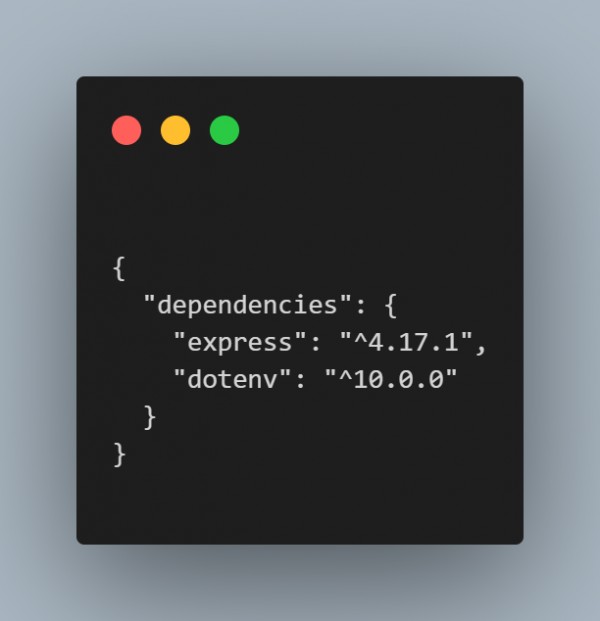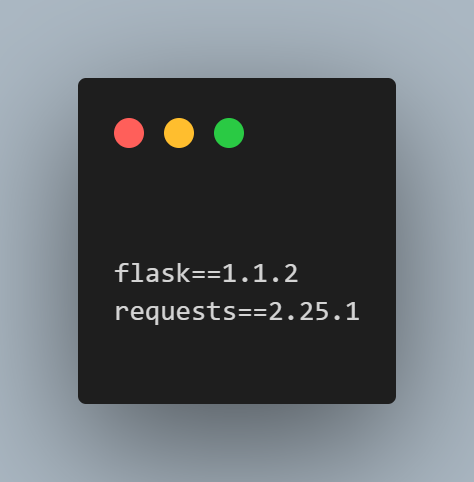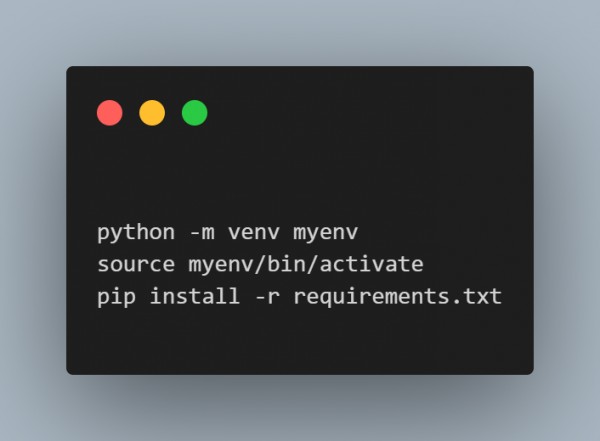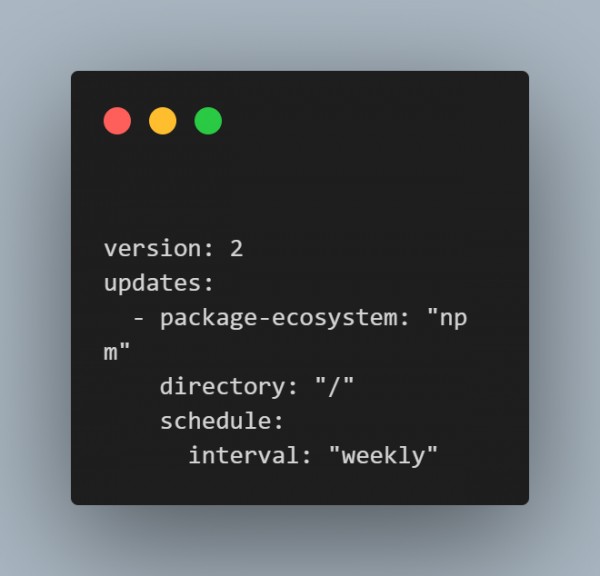Manage Dependencies Effectively Dependency management is a key factor in maintaining the stability and reliability of your applications. Here are some best practices, along with examples:
1. Employ dependency management tools
Tools like npm (JavaScript), pip (Python), Maven (Java), and Composer (PHP) help manage dependencies in your code. This means they make sure that when you're using different libraries or packages, the correct versions that work well together are installed automatically. These tools check for compatibility and ensure that the versions used in your project don’t cause conflicts, so your application runs smoothly with the required components.
Example (Node.js): Create a package.json file to specify dependencies and versions.

2. Pin Dependencies:
The pinning of specific versions avoids breaking changes from updates. This can be done explicitly by specification in version dependency files.
Example (Python): In requirements.txt:

3. Use Virtual Environments
Virtual environments make sure that dependencies remain isolated per project, preventing conflicts across projects.
Example (Python):

4. Carefully Dependabot or npm audit Update Your Dependencies
Use Dependabot, or npm audit to identify which packages are outdated and update outdated packages. Test such changes in a development environment before implementing the change.
Example (GitHub Dependabot):

5. Dependency Lock File
Lock files like package-lock.json for npm or Pipfile.lock for pipenv are essential for managing dependencies in projects. These files record the exact versions of all the packages (dependencies) used in your application. This ensures that when someone else runs the project, or when it's deployed on different environments (like development, staging, or production), the same versions of the dependencies are used, making the environment consistent and reliable. This prevents unexpected bugs or issues that might arise from using different versions of the same packages.
Example: After installing dependencies in Node.js, package-lock.json is automatically generated.
Adhering to these principles ensures that your application's dependencies are properly managed, reducing the risk of conflicts and enhancing stability across different environments. By keeping consistent versions of dependencies in place, you mitigate unexpected issues and provide a smoother development and deployment process. This approach leads to more predictable and reliable results, ensuring your applications function the same way, regardless of where they are run.
If you're looking for a better career, I personally suggest you take the PG in DevOps!
 REGISTER FOR FREE WEBINAR
X
REGISTER FOR FREE WEBINAR
X
 Thank you for registering
Join Edureka Meetup community for 100+ Free Webinars each month
JOIN MEETUP GROUP
Thank you for registering
Join Edureka Meetup community for 100+ Free Webinars each month
JOIN MEETUP GROUP